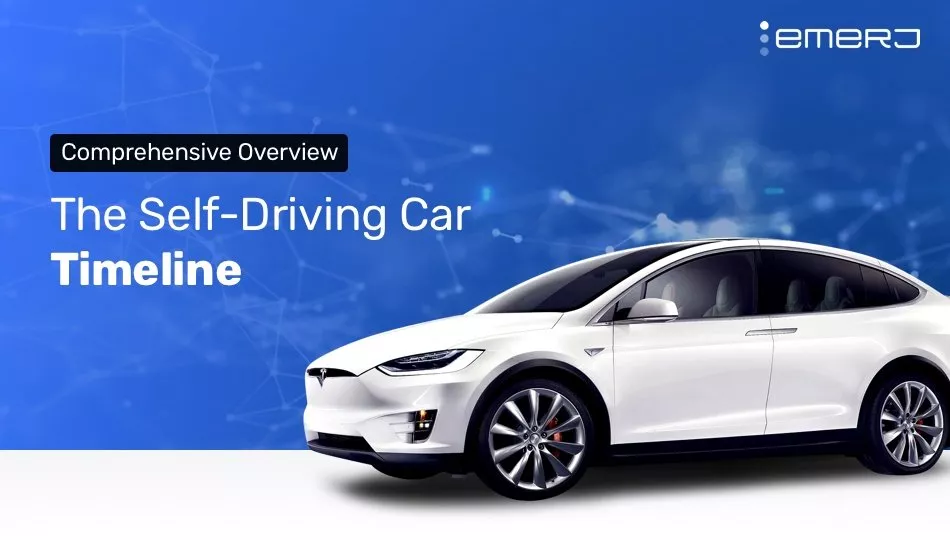
AI Tech in Autonomous Vehicles 2023, in the realm of transportation, a profound transformation is underway. Autonomous vehicle AI advancements are rapidly reshaping the way we perceive and experience mobility. The year 2023 marks a pivotal chapter in this journey, where the convergence of cutting-edge technology and artificial intelligence (AI) is giving birth to a new era of AI tech for self-driving cars. In this article, we’ll explore the remarkable landscape of 2023 autonomous vehicle AI trends and how they are revolutionizing our roads.
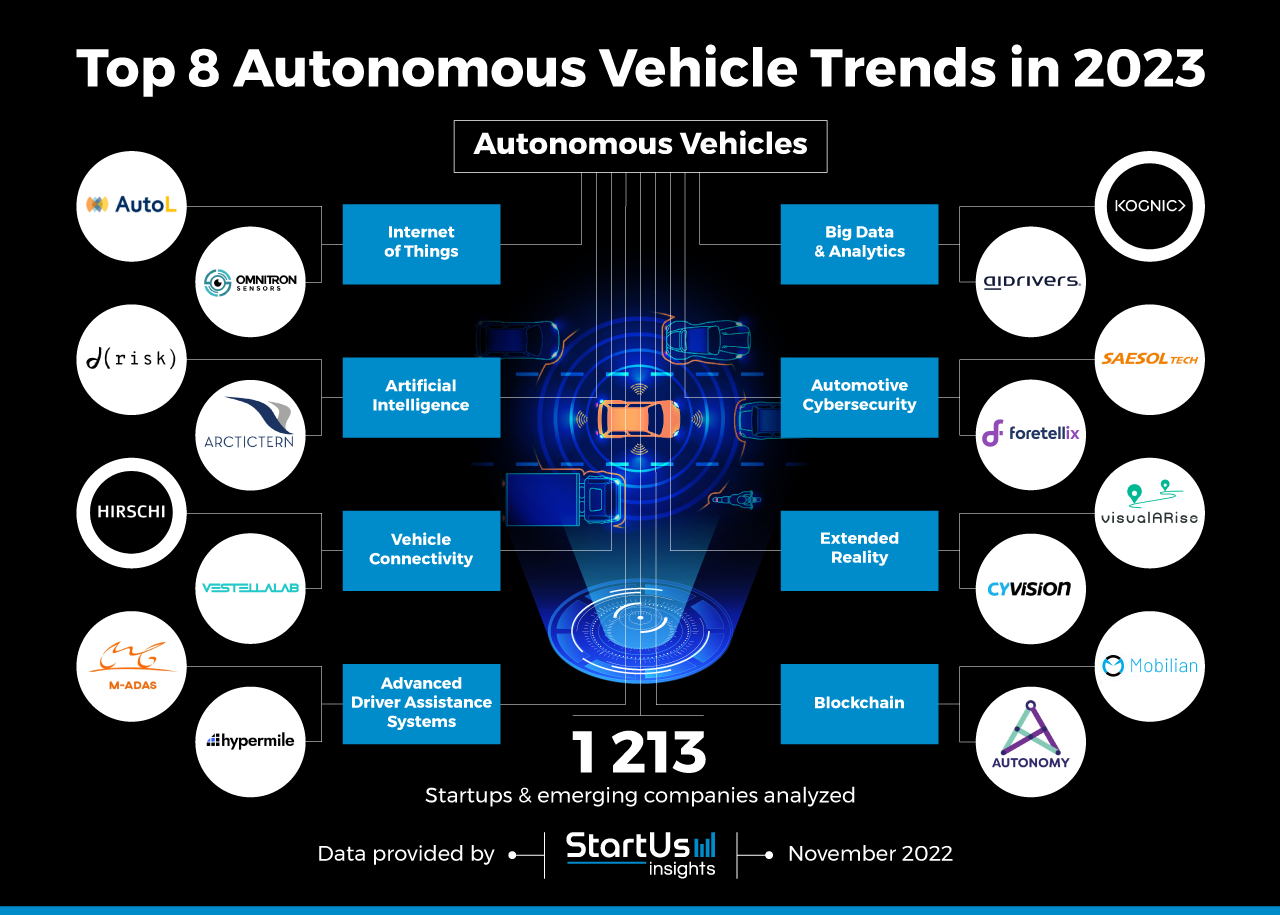
Table of Contents
The Road to Autonomous Mobility
The vision of self-driving cars has long captivated the human imagination. From science fiction to real-world prototypes, the journey toward autonomous mobility has been both exhilarating and challenging. However, it’s the advancements in AI-driven technology that have accelerated progress and made the once-futuristic concept a tangible reality.
AI-Driven Autonomous Vehicle Technology: The Foundation
At the heart of this revolution lies AI-driven autonomous vehicle technology. This technology encompasses a multitude of AI systems, including computer vision, machine learning, sensor fusion, and deep neural networks. These components work together to process vast amounts of data from sensors such as LiDAR, cameras, and radar, enabling vehicles to perceive their surroundings and make real-time decisions.
Autonomous Vehicle AI Advancements: What’s New in 2023
As we step into 2023, we find ourselves on the cusp of groundbreaking developments in autonomous vehicle AI. The relentless pursuit of safety, efficiency, and user experience is driving innovation at an unprecedented pace.

1. Enhanced Perception
One of the key autonomous vehicle AI advancements in 2023 is enhanced perception capabilities. AI algorithms can now identify and categorize a broader range of objects and obstacles on the road. This means that autonomous vehicles can better navigate complex urban environments and respond to unexpected situations.
2. Predictive Analytics
Predictive analytics, powered by AI, is transforming the way autonomous vehicles operate. These systems can anticipate the behavior of other road users, from pedestrians to other vehicles. This foresight enables self-driving cars to make proactive decisions, leading to safer and more efficient journeys.
3. Multi-Modal Sensor Fusion
The integration of multi-modal sensor fusion is another noteworthy advancement. By combining data from various sensors, autonomous vehicles can create a more comprehensive and accurate understanding of their surroundings. This redundancy in perception enhances safety and reliability.
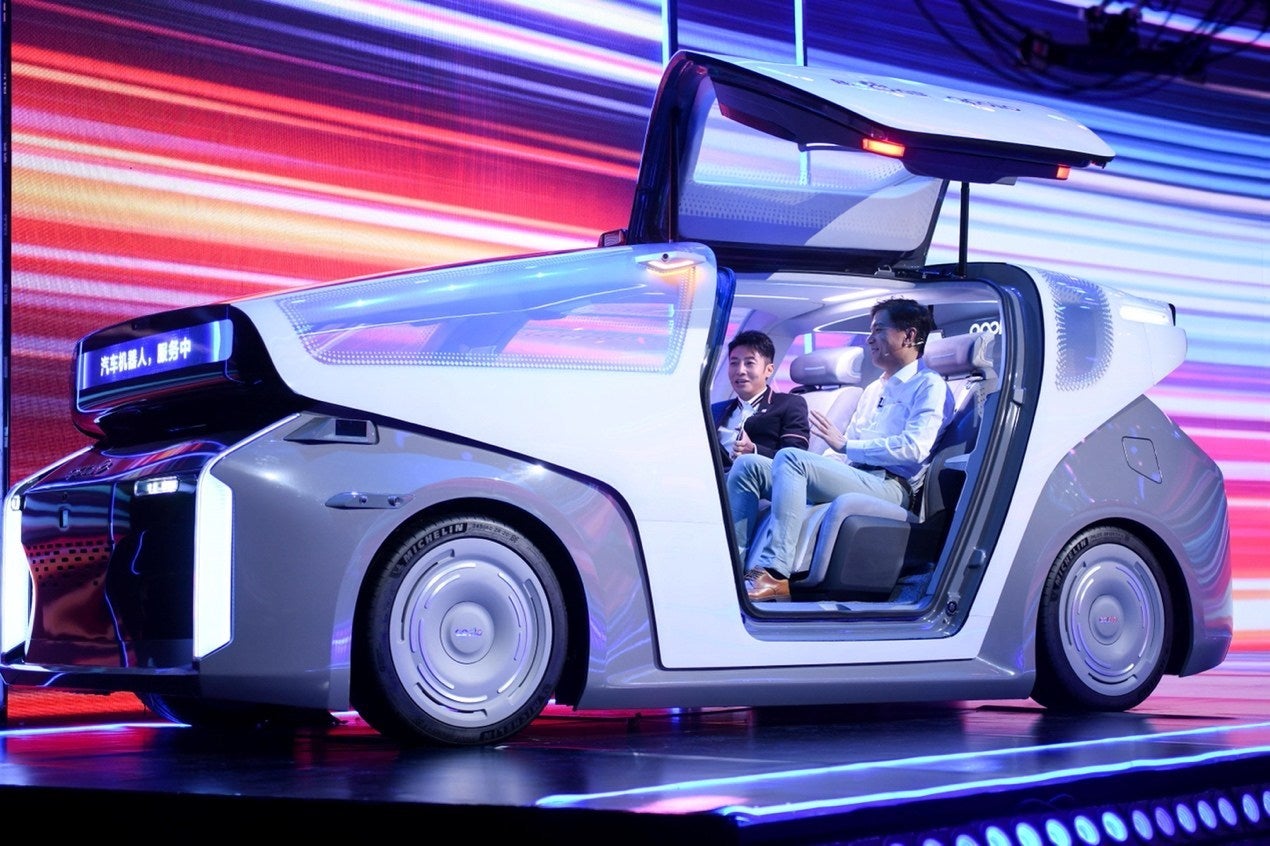
4. Robust Edge Computing
In 2023, autonomous vehicles are equipped with robust edge computing capabilities. This allows them to process data locally, reducing latency and enhancing real-time decision-making. Edge computing is crucial for ensuring a swift response to critical situations on the road.
The Impact on Transportation
The AI tech for self-driving cars isn’t merely a technological marvel; it’s a catalyst for transformative change in the transportation sector.
1. Safety
Safety is paramount in autonomous mobility. AI-driven technologies have the potential to significantly reduce accidents caused by human error. With enhanced perception, predictive analytics, and real-time decision-making, self-driving cars can navigate complex traffic scenarios with precision.
2. Efficiency
Autonomous vehicles promise improved traffic flow and reduced congestion. With the ability to communicate with each other and infrastructure, they can optimize routes, minimize delays, and enhance the overall efficiency of transportation networks.
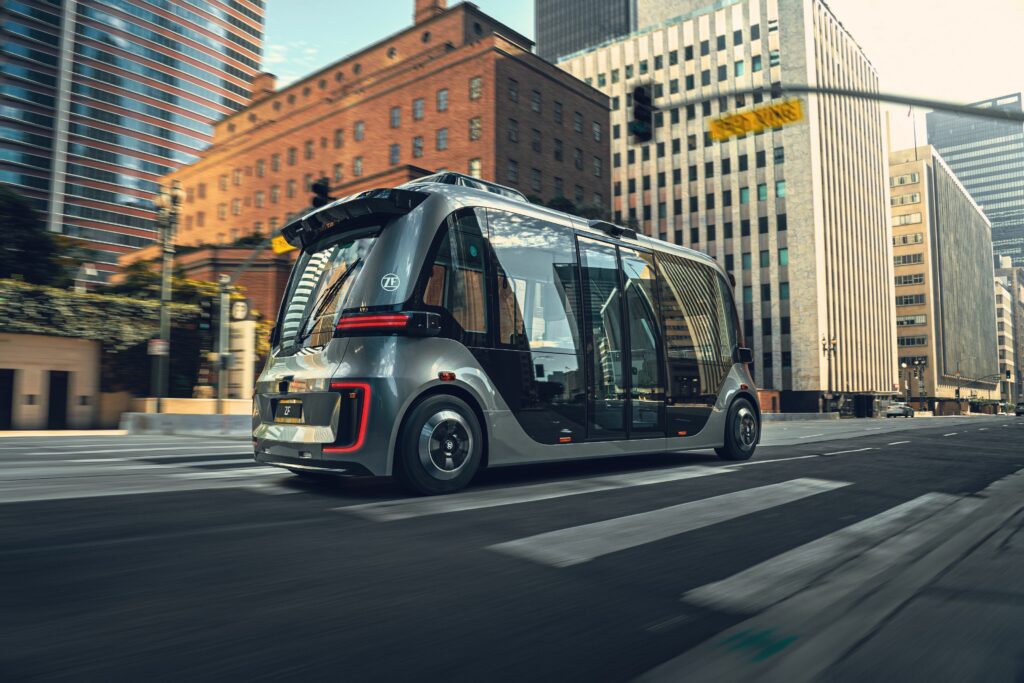
3. Accessibility
AI-driven autonomous vehicle technology has the potential to enhance accessibility for individuals with mobility challenges. Self-driving cars can offer newfound independence to those who may have limited options for transportation.
4. Environmental Impact
Reducing carbon emissions is a global imperative. Autonomous vehicles can contribute to this goal by optimizing driving patterns and reducing fuel consumption. By choosing the most efficient routes and driving styles, they can minimize their environmental footprint.
2023 Autonomous Vehicle AI Trends: What Lies Ahead
The road ahead for autonomous vehicles is filled with promise and potential. Here are some of the key 2023 autonomous vehicle AI trends that are poised to shape the industry:
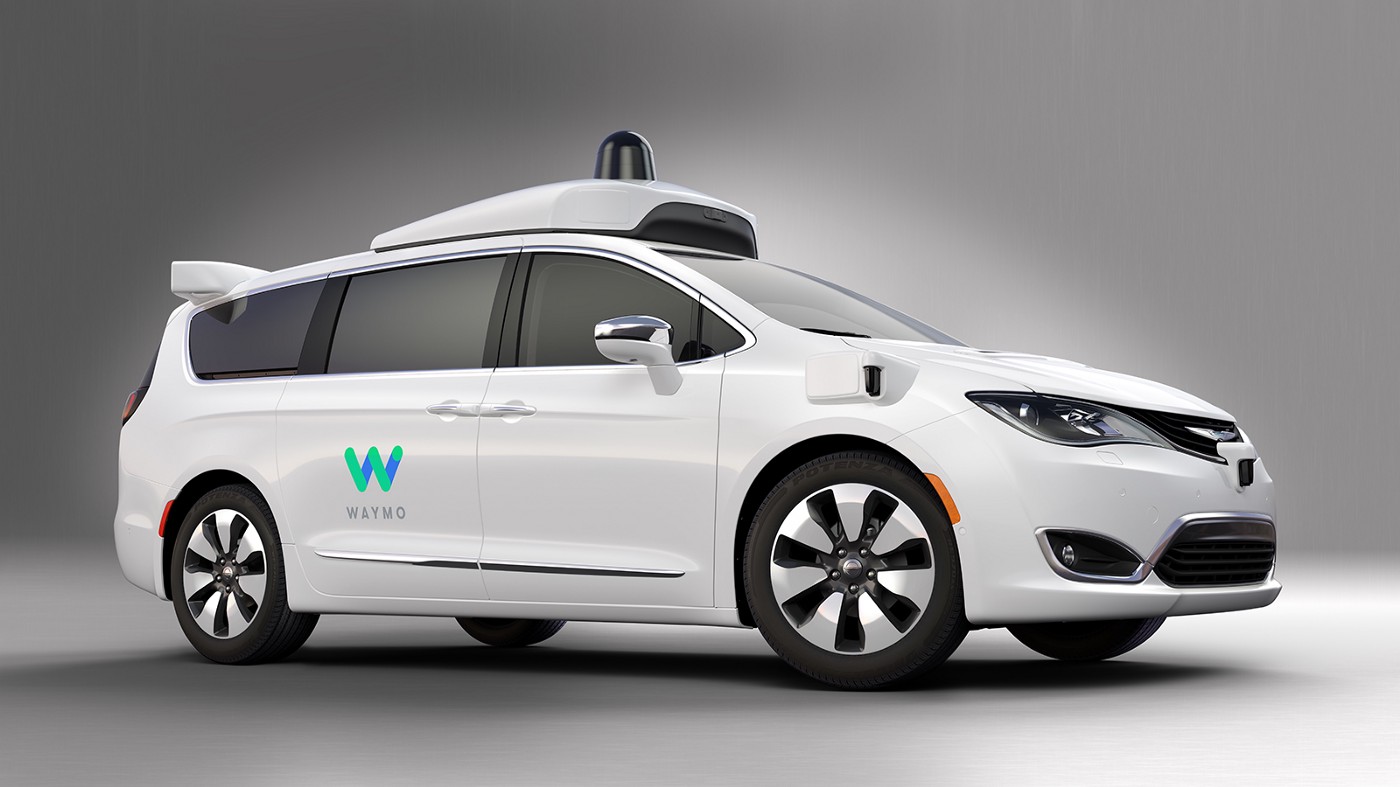
1. Regulatory Frameworks
As autonomous vehicles become more prevalent, governments are working to establish regulatory frameworks to ensure safety and accountability. These frameworks will set the stage for widespread adoption and integration into transportation systems.
2. Urban Mobility Solutions
In urban environments, autonomous vehicles have the potential to revolutionize public transportation. Shared autonomous fleets and on-demand mobility services are emerging trends that can enhance urban mobility while reducing the need for private car ownership.
3. Cybersecurity
As autonomous vehicles rely on interconnected systems and data exchange, cybersecurity becomes a paramount concern. AI tech for self-driving cars will include robust cybersecurity measures to protect against cyber threats and hacking attempts.
4. Ethical Considerations
Ethical considerations, such as decision-making in critical situations, will continue to be a topic of debate and development. Autonomous vehicles must be programmed to make ethically sound choices, which can be a complex task.
The Road to Full Autonomy, AI Tech in Autonomous Vehicles 2023
While the AI-driven autonomous vehicle technology of 2023 represents a significant leap forward, the journey to full autonomy is ongoing. Level 5 autonomy, where vehicles can operate without any human intervention in all conditions, remains the ultimate goal. Achieving this level of autonomy involves solving complex technical challenges, addressing regulatory concerns, and earning public trust.
In conclusion, autonomous vehicle AI advancements are propelling us into an era of transportation that once existed solely in the realm of science fiction. The convergence of AI, advanced sensors, and computational power is reshaping the way we move from one place to another. As we embrace the AI tech for self-driving cars and navigate the 2023 autonomous vehicle AI trends, we embark on a journey that has the potential to revolutionize mobility, improve safety, and transform our cities. The road to full autonomy may be long, but the destination promises a future of unparalleled possibilities.

Thanks for sharing. I read many of your blog posts, cool, your blog is very good.
Your point of view caught my eye and was very interesting. Thanks. I have a question for you.
Thanks for sharing. I read many of your blog posts, cool, your blog is very good.
Your point of view caught my eye and was very interesting. Thanks. I have a question for you.
Thanks for sharing. I read many of your blog posts, cool, your blog is very good.
I don’t think the title of your article matches the content lol. Just kidding, mainly because I had some doubts after reading the article.
Your article helped me a lot, is there any more related content? Thanks!
Thanks for sharing. I read many of your blog posts, cool, your blog is very good.
I don’t think the title of your article matches the content lol. Just kidding, mainly because I had some doubts after reading the article.
Your article helped me a lot, is there any more related content? Thanks!
Thanks for sharing. I read many of your blog posts, cool, your blog is very good.
Your point of view caught my eye and was very interesting. Thanks. I have a question for you.
Your article helped me a lot, is there any more related content? Thanks!
Your article helped me a lot, is there any more related content? Thanks! https://www.binance.com/join?ref=P9L9FQKY
ABS Pipes in Iraq Elite Pipe Factory in Iraq is a leader in the production of ABS pipes, which are valued for their strength, toughness, and resistance to impact and chemicals. Our ABS pipes are manufactured to the highest standards, ensuring reliability and long-lasting performance in various applications. As one of the best and most reliable pipe manufacturers in Iraq, Elite Pipe Factory is committed to delivering products that meet the needs of our customers. For detailed information about our ABS pipes, visit elitepipeiraq.com.
Your article helped me a lot, is there any more related content? Thanks!
This is an awesome article. 해외 카지노 사이트
Keep up the fantastic work! Kalorifer Sobası odun, kömür, pelet gibi yakıtlarla çalışan ve ısıtma işlevi gören bir soba türüdür. Kalorifer Sobası içindeki yakıtın yanmasıyla oluşan ısıyı doğrudan çevresine yayar ve aynı zamanda suyun ısınmasını sağlar.
Keep up the fantastic work! Kalorifer Sobası odun, kömür, pelet gibi yakıtlarla çalışan ve ısıtma işlevi gören bir soba türüdür. Kalorifer Sobası içindeki yakıtın yanmasıyla oluşan ısıyı doğrudan çevresine yayar ve aynı zamanda suyun ısınmasını sağlar.
Thank you for your sharing. I am worried that I lack creative ideas. It is your article that makes me full of hope. Thank you. But, I have a question, can you help me?
Thanks for sharing. I read many of your blog posts, cool, your blog is very good. https://www.binance.info/join?ref=P9L9FQKY
Can you be more specific about the content of your article? After reading it, I still have some doubts. Hope you can help me.
Thanks for sharing. I read many of your blog posts, cool, your blog is very good.
I don’t think the title of your article matches the content lol. Just kidding, mainly because I had some doubts after reading the article.
I don’t think the title of your article matches the content lol. Just kidding, mainly because I had some doubts after reading the article.
Thank you for your sharing. I am worried that I lack creative ideas. It is your article that makes me full of hope. Thank you. But, I have a question, can you help me?
провести независимую соут проведение оценки условий труда соут
Thanks for sharing. I read many of your blog posts, cool, your blog is very good.
Very well presented. Every quote was awesome and thanks for sharing the content. Keep sharing and keep
카지노사이트 추천motivating others.
Thanks for sharing. I read many of your blog posts, cool, your blog is very good.
Thank you for your sharing. I am worried that I lack creative ideas. It is your article that makes me full of hope. Thank you. But, I have a question, can you help me?
Hi there to all, because I am really keen of reading this weblog’s post to be updated regularly. It includes pleasant data.
https://xenon-lampa.ru/content/pags/promokod_pokerdom_pri_registracii_1.html
Your article helped me a lot, is there any more related content? Thanks!
Right here is the right website for everyone who wishes to find out about this topic. You realize so much its almost tough to argue with you (not that I really would want to…HaHa). You certainly put a brand new spin on a topic that has been discussed for decades. Great stuff, just great!
казино зума
Hi! I’m at work browsing your blog from my new apple iphone! Just wanted to say I love reading through your blog and look forward to all your posts! Keep up the outstanding work!
официальный сайт банда казино
Thanks for sharing. I read many of your blog posts, cool, your blog is very good.
Thanks for sharing. I read many of your blog posts, cool, your blog is very good.
Your article helped me a lot, is there any more related content? Thanks! https://accounts.binance.com/tr/register?ref=W0BCQMF1
Your point of view caught my eye and was very interesting. Thanks. I have a question for you.
Marie Nicole Clothing Discounts Mid-season sale: Don’t miss out on Marie Nicole Clothing discounts!
Hello everyone, it’s my first visit at this site, and post is actually fruitful in support of me, keep up posting such posts.
https://dgc.co.za/pag/paripesa_promo_code.html
Can you be more specific about the content of your article? After reading it, I still have some doubts. Hope you can help me.
Thanks for sharing. I read many of your blog posts, cool, your blog is very good.
I don’t think the title of your article matches the content lol. Just kidding, mainly because I had some doubts after reading the article.
Your article helped me a lot, is there any more related content? Thanks!
Your article helped me a lot, is there any more related content? Thanks!
Your article helped me a lot, is there any more related content? Thanks!
I don’t think the title of your article matches the content lol. Just kidding, mainly because I had some doubts after reading the article.
Thanks for sharing. I read many of your blog posts, cool, your blog is very good.
I don’t think the title of your article matches the content lol. Just kidding, mainly because I had some doubts after reading the article.
Can you be more specific about the content of your article? After reading it, I still have some doubts. Hope you can help me.
H3Ngzb6YnT9
LfPZ1iEV5zF
Thank you for your sharing. I am worried that I lack creative ideas. It is your article that makes me full of hope. Thank you. But, I have a question, can you help me?
самые точные прогнозы на футбол самые точные прогнозы на футбол .
скачать бк осталось именно выбрать подходящее 1win1143.ru
диплом о среднем полном образовании купить http://www.arus-diplom9.ru – диплом о среднем полном образовании купить .
Thank you for your sharing. I am worried that I lack creative ideas. It is your article that makes me full of hope. Thank you. But, I have a question, can you help me?
купить в белгороде диплом купить в белгороде диплом .
Приобрести диплом любого ВУЗа!
Мы изготавливаем дипломы психологов, юристов, экономистов и других профессий по приятным ценам— diplomf-v-irkutske.ru
1win официальный сайт букмекерской 1win1143.ru
прогнозы на теннис го спорт прогнозы на теннис го спорт .
где можно купить диплом где можно купить диплом .
Купить диплом университета по невысокой цене вы сможете, обратившись к проверенной специализированной компании. Заказать документ о получении высшего образования можно в нашей компании. orikdok-4v-gorode-kaluga-40.ru
Приобретение документа о высшем образовании через качественную и надежную фирму дарит немало достоинств для покупателя. Быстро заказать диплом: career.logictive.solutions/employer/gosznac-diplom-24
Мы предлагаем оформление дипломов ВУЗов по всей Украине — с печатями, подписями, приложением и возможностью архивной записи (по запросу).
Документ максимально приближен к оригиналу и проходит визуальную проверку.
Мы гарантируем, что в случае проверки документа, подозрений не возникнет.
– Конфиденциально
– Доставка 3–7 дней
– Любая специальность
Уже более 2824 клиентов воспользовались услугой — теперь ваша очередь.
Пишите — ответим быстро, без лишних формальностей.
1win вход россия 1win вход россия
1вин букмекерская контора http://1win1145.ru
купить диплом о высшем образовании в москве купить диплом о высшем образовании в москве .
промокод на 1win промокод на 1win
Заказать диплом возможно используя официальный сайт компании. orikdok-2v-gorode-omsk-55.ru
интернет-магазин сантехники с доставкой по россии internet-magazine-santehniki.ru .
прогноз на спорт футбол прогноз на спорт футбол .
Выгодно заказать диплом о высшем образовании!
Покупка официального диплома через качественную и надежную фирму дарит ряд достоинств. Приобрести диплом любого университета у надежной компании: doks-v-gorode-saratov-64.ru
Мы готовы предложить дипломы любых профессий по доступным тарифам. Дипломы производят на подлинных бланках Приобрести диплом об образовании vuz-diplom.ru
прогнозы на чемпионат мира по хоккею https://luchshie-prognozy-na-khokkej2.ru/ .
Thank you, your article surprised me, there is such an excellent point of view. Thank you for sharing, I learned a lot. https://www.binance.com/zh-CN/join?ref=53551167
Today, I went to the beach front with my children. I found a sea shell and gave it to my 4 year old daughter and said “You can hear the ocean if you put this to your ear.” She placed the shell to her ear and screamed. There was a hermit crab inside and it pinched her ear. She never wants to go back! LoL I know this is totally off topic but I had to tell someone!
http://gazeta.sebastopol.ua/de-znajty-sklo-fary-na-ridkisnyj-kuzov.html
1win registration https://1win3023.com
Приобрести документ ВУЗа вы можете в нашей компании. Мы оказываем услуги по производству и продаже документов об окончании любых университетов РФ. Гарантируем, что в случае проверки документа работодателем, подозрений не возникнет. zador.flybb.ru/viewtopic.php?f=1&t=4098&sid=f5528fd5c79e1d83876cb05fbf5ad84a
ванна с гидромассажем отзывы ванна с гидромассажем отзывы .
1win mines signal telegram http://1win3021.com/
Мы изготавливаем дипломы психологов, юристов, экономистов и любых других профессий по разумным тарифам. Покупка документа, подтверждающего обучение в университете, – это рациональное решение. Приобрести диплом ВУЗа: forummichiganrp.moibb.ru/viewtopic.php?f=21&t=1352
Мы предлагаем оформление дипломов ВУЗов по всей Украине — с печатями, подписями, приложением и возможностью архивной записи (по запросу).
Документ максимально приближен к оригиналу и проходит визуальную проверку.
Мы даем гарантию, что в случае проверки документа, подозрений не возникнет.
– Конфиденциально
– Доставка 3–7 дней
– Любая специальность
Уже более 3866 клиентов воспользовались услугой — теперь ваша очередь.
Купить диплом университета — ответим быстро, без лишних формальностей.
Приобрести диплом института!
Мы изготавливаем дипломы любой профессии по доступным тарифам— univernovosib.ru
купить сантехнику италия http://www.gessi-santehnika-1.ru .
Заказать диплом ВУЗа по доступной стоимости вы сможете, обращаясь к проверенной специализированной фирме. Купить диплом: [url=http://teseygroup.ru/question/vash-uspeh-nachinaetsya-s-diploma-2/]teseygroup.ru/question/vash-uspeh-nachinaetsya-s-diploma-2[/url]
Мы предлагаем оформление дипломов ВУЗов по всей Украине — с печатями, подписями, приложением и возможностью архивной записи (по запросу).
Документ максимально приближен к оригиналу и проходит визуальную проверку.
Мы гарантируем, что в случае проверки документа, подозрений не возникнет.
– Конфиденциально
– Доставка 3–7 дней
– Любая специальность
Уже более 928 клиентов воспользовались услугой — теперь ваша очередь.
Пишите — ответим быстро, без лишних формальностей.
Приобрести диплом любого института!
Мы можем предложить дипломы любой профессии по приятным тарифам— sampages.ru
Мы предлагаем быстро и выгодно купить диплом, который выполнен на бланке ГОЗНАКа и заверен печатями, водяными знаками, подписями. Данный диплом способен пройти лубую проверку, даже при помощи специальных приборов. prestig.flybb.ru/posting.php?mode=post&f=11
аттестат 9 классов купить http://www.arus-diplom8.ru .
iphone центр http://www.kupit-ajfon-cs1.ru .
где сделать проект перепланировки http://proekt-pereplanirovki-kvartiry.ru/ .
разработать проект перепланировки https://proekt-pereplanirovki-kvartiry1.ru .
mostbet az aviator mostbet4050.ru
Thank you, your article surprised me, there is such an excellent point of view. Thank you for sharing, I learned a lot.
1win sign up [url=1win3028.com]1win3028.com[/url]
1win зеркало сайта на сегодня https://www.1win1138.ru
1win casino http://1win3024.com
купить аттестат в архангельске купить аттестат в архангельске .
Приобрести диплом на заказ в столице возможно через официальный портал компании. orikdok-2v-gorode-smolensk-67.online
аттестат купить цена [url=arus-diplom4.ru]arus-diplom4.ru[/url] .
купить диплом педиатра http://www.arus-diplom5.ru .
купить диплом техникума ссср http://www.arus-diplom3.ru .
iphone спб iphone спб .
мост бет мост бет
электрокарнизы для штор электрокарнизы для штор .
Покупка дипломов ВУЗов В киеве — с печатями, подписями, приложением и возможностью архивной записи (по запросу).
Документ максимально приближен к оригиналу и проходит визуальную проверку.
Мы даем гарантию, что в случае проверки документа, подозрений не возникнет.
– Конфиденциально
– Доставка 3–7 дней
– Любая специальность
Уже более 4225 клиентов воспользовались услугой — теперь ваша очередь.
Как купить диплом о высшем образовании — ответим быстро, без лишних формальностей.
Оформиление дипломов ВУЗов В киеве — с печатями, подписями, приложением и возможностью архивной записи (по запросу).
Документ максимально приближен к оригиналу и проходит визуальную проверку.
Мы гарантируем, что в случае проверки документа, подозрений не возникнет.
– Конфиденциально
– Доставка 3–7 дней
– Любая специальность
Уже более 2007 клиентов воспользовались услугой — теперь ваша очередь.
Диплом высшего образования купить — ответим быстро, без лишних формальностей.
Наша компания предлагает максимально быстро купить диплом, который выполнен на оригинальной бумаге и заверен печатями, водяными знаками, подписями официальных лиц. Данный документ способен пройти любые проверки, даже с применением специфических приборов. cheere.org/read-blog/117618_diplom-za-11-klass-kupit.html
Покупка дипломов ВУЗов по всей Украине — с печатями, подписями, приложением и возможностью архивной записи (по запросу).
Документ максимально приближен к оригиналу и проходит визуальную проверку.
Мы гарантируем, что в случае проверки документа, подозрений не возникнет.
– Конфиденциально
– Доставка 3–7 дней
– Любая специальность
Уже более 4783 клиентов воспользовались услугой — теперь ваша очередь.
Купить диплом о высшем образовании недорого — ответим быстро, без лишних формальностей.
Мы предлагаем оформление дипломов ВУЗов по всей Украине — с печатями, подписями, приложением и возможностью архивной записи (по запросу).
Документ максимально приближен к оригиналу и проходит визуальную проверку.
Мы даем гарантию, что в случае проверки документа, подозрений не возникнет.
– Конфиденциально
– Доставка 3–7 дней
– Любая специальность
Уже более 1252 клиентов воспользовались услугой — теперь ваша очередь.
Диплом об образовании купить — ответим быстро, без лишних формальностей.
Оформиление дипломов ВУЗов В киеве — с печатями, подписями, приложением и возможностью архивной записи (по запросу).
Документ максимально приближен к оригиналу и проходит визуальную проверку.
Мы гарантируем, что в случае проверки документа, подозрений не возникнет.
– Конфиденциально
– Доставка 3–7 дней
– Любая специальность
Уже более 4218 клиентов воспользовались услугой — теперь ваша очередь.
Купить диплом с занесением — ответим быстро, без лишних формальностей.
Сайт ламината. http://www.xn--1-7sba5anhi5b.xn--p1ai/ .
Приобрести диплом под заказ возможно используя официальный портал компании. ks4yumuo.listbb.ru/viewtopic.php?f=18&t=1795
карнизы для штор с электроприводом http://www.elektrokarnizy10.ru .
mostbet aviator hack http://www.mostbet4053.ru
Güncel ve güvenilir deneme bonusu veren siteler listesi. En iyi bahis siteleri bonus fırsatlarıyla kazanmaya hemen başlayın.
mostbet az bank transfer mostbet az bank transfer
купить диплом спб с занесением в реестр http://www.arus-diplom21.ru .
купить диплом с проведением в купить диплом с проведением в .